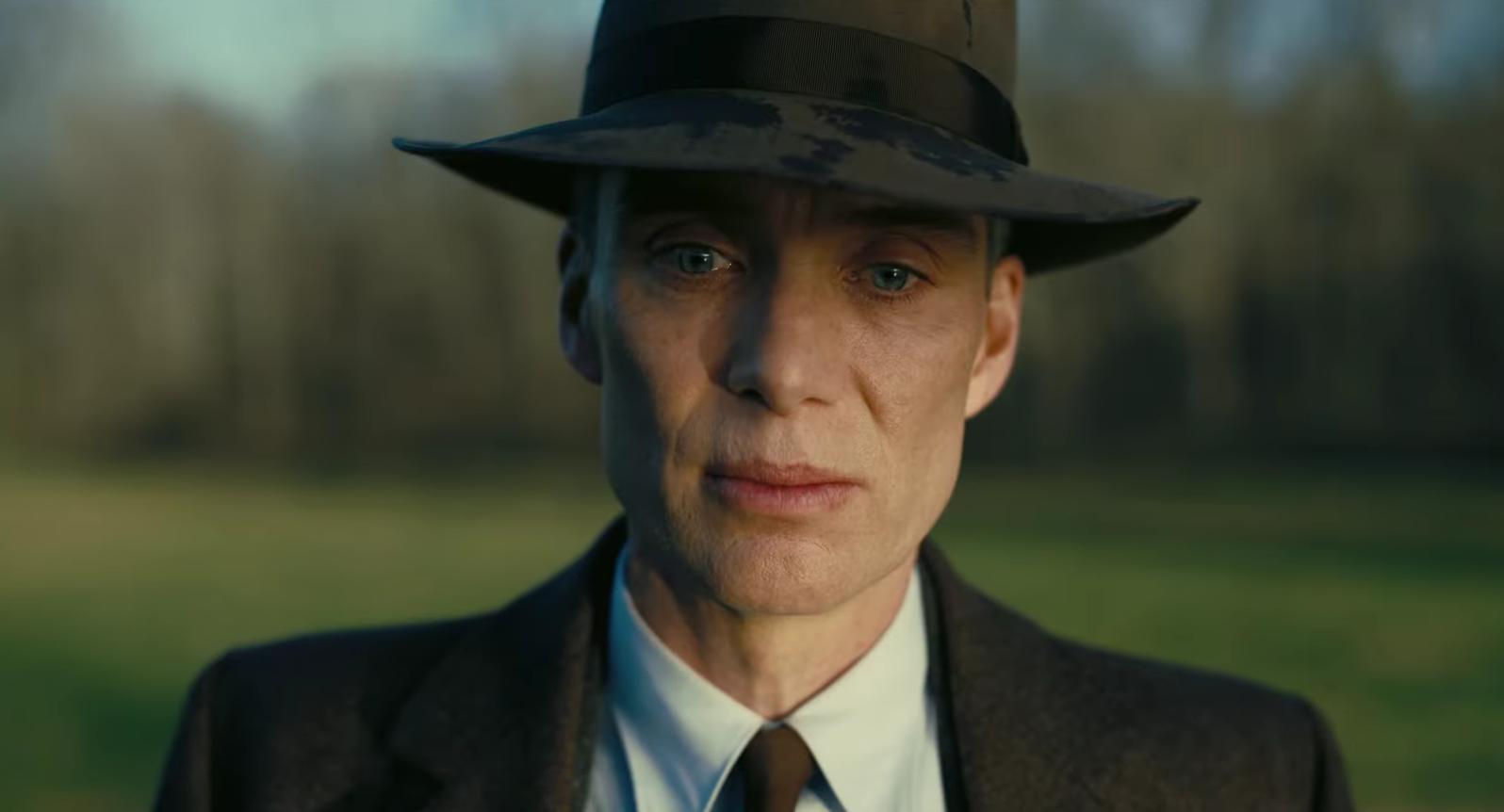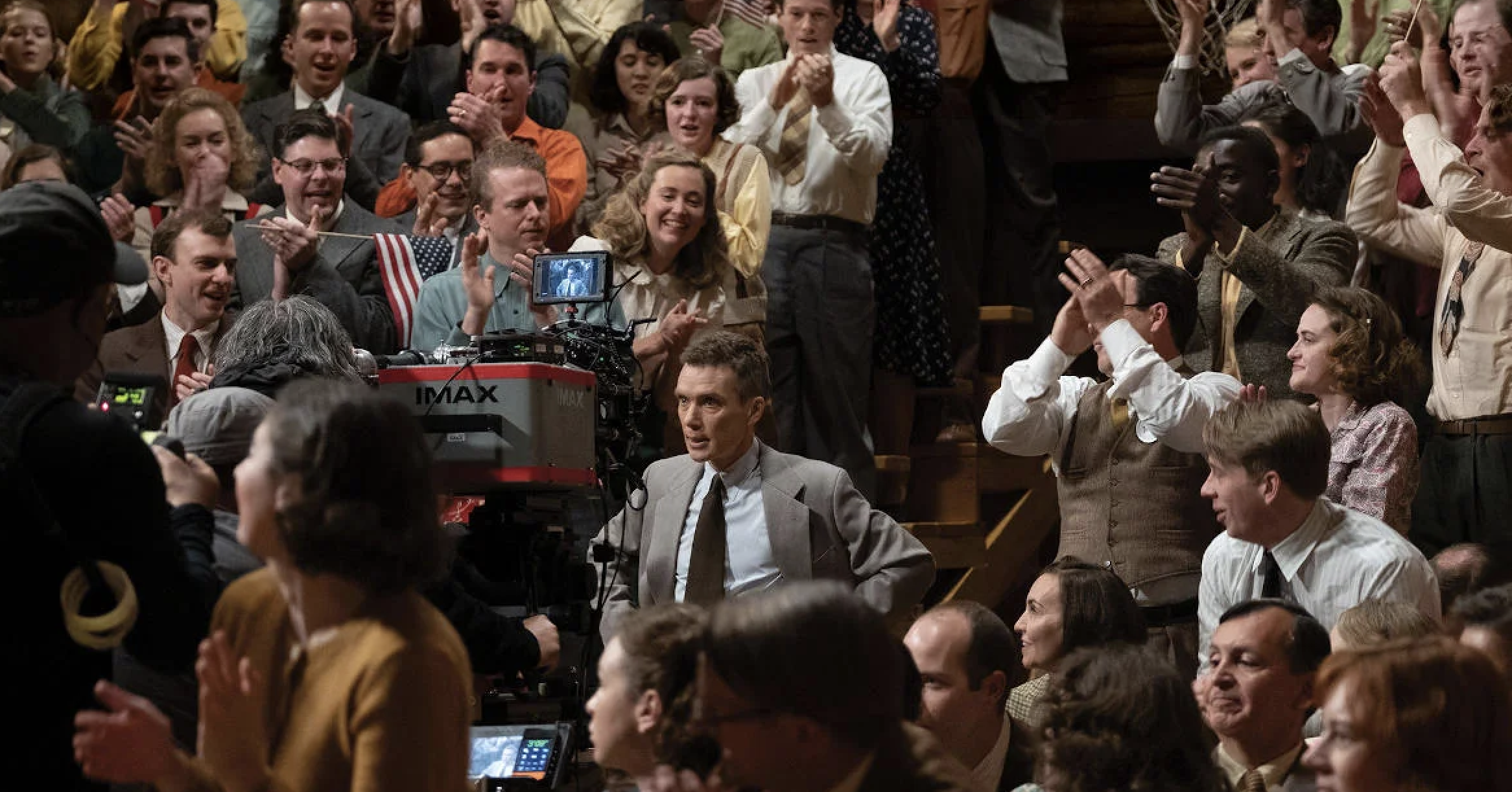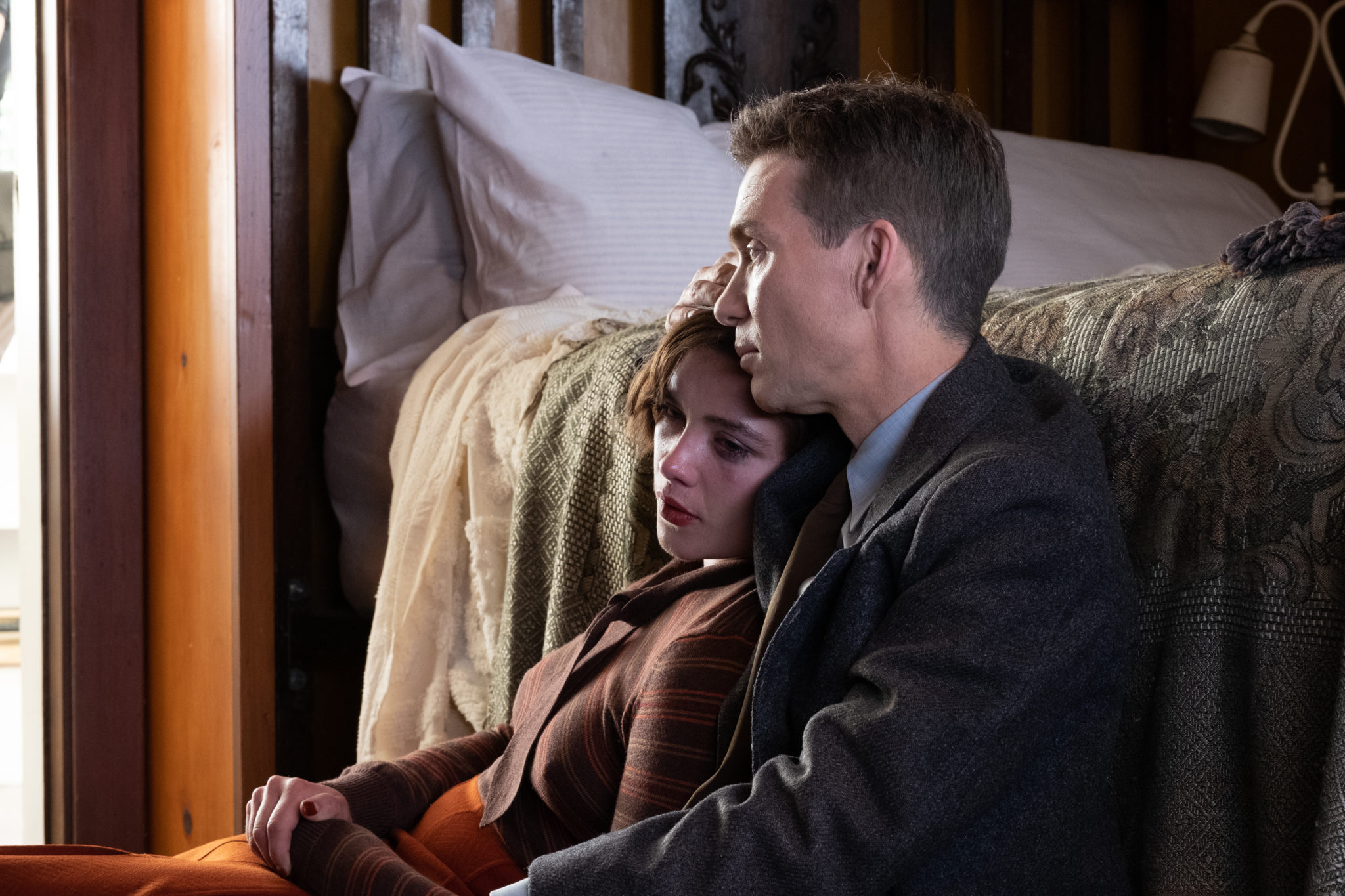- Film And TV
- 20 Jul 23
REVIEW: Roe McDermott casts a critical eye over Oppenheimer – and likes some of what she sees

"Cillian Murphy’s film and his performance is sublimely layered," she says in this deep dive look at Christopher Nolan's blockbuster
With Chat GPT and A.I. having been unceremoniously launched upon us with little regard for how this technology could impact education, job security, the spread of misinformation, plagiarism, the protection of and value of creative works, and human communication, society is yet again facing a quandary that has accompanied many advances in technology: the awareness that just because we can do something, doesn’t mean we should. As these discussions around how scientific advancement needs to be accompanied by social, cultural and ethical considerations to protect humanity again surge, along comes Christopher Nolan’s Oppenheimer, the story of a man who helped research and create the two atomic bombs that were dropped on Hiroshima and Nagasaki during World War II – and considered the ethical implications of his work only after it had been unleashed.
I’m sure Nolan appreciates how these questions of ethics and science are cyclical, coming back around again and again. The American has always been preoccupied with the personal and the vast, putting individual desires and ambitions in relation to the vastness of the world and cosmos, naturally making room for circular imagery that captures planets, galaxies, cycles of time, the interconnected flow of life. Oppenheimer is no different, beginning with ripples of water, constantly referring back to images of marbles and molecules, and leading, of course, to images of the Earth lit up with blooming nuclear explosions.
 Oppenheimer.
Oppenheimer.Against this circularity is the almost jarring angularity of Cillian Murphy’s Oppenheimer, introduced to us first as a young student, rake-thin with jutting cheekbones and an intellect like a knife: sharp, penetrating and potentially lethal. An early scene shows us Oppenheimer poisoning an apple belonging to a professor he dislikes: a true story illustrating how he can take something soft, round, natural, of the Earth, and infuse it with something terrible.
The apple story is based on real events, and the film is adapted from Kai Bird and Martin J. Sherwin’s American Prometheus: The Triumph and Tragedy of J. Robert Oppenheimer. The biography is a 600-plus page tome and Nolan doesn’t shy away from getting into the gritty details. Exploring Oppenheimer’s scientific career and meetings with figures like Nihls Bohr (Kenneth Branagh) at Oxford; his Communist sympathies and activism at Berkely which resulted in disapproval from colleagues such as Ernest Lawrence (Josh Hartnett); the origin and development of the Manhattan Project under the guidance of General Leslie Groves (Matt Damon); a complex relationship with recruiter Lewis Strauss (Robert Downey Jr.); a character assassination disguised as a 1954 security hearing interrogation; D.C. political machinations and Senate hearings; and some of Oppenheimer’s womanising, Nolan packs his film full of historical information, ideological discussions and some basic physics, almost demanding a second watch to get all the events and key characters straight.
With several timelines (one shot in black and white), impressionistic imagery of waves and particles, camerawork that pans and tracks, a score that constantly soars and swells, Nolan is playing with perpetual motion maximalism. It’s a testament to the sharp writing and editing that it remains vaguely cohesive and utterly engaging for its three hour runtime, though the relentless pace can leave the emotional impact and resonance of all the action without room to breathe – at least on first viewing.
 Oppenheimer.
Oppenheimer.The performances are stellar across the board, with each actor grounding us with their characters and showing us the differing motivations and forces at play. Damon’s General Groves is gruff and no-nonsense, recognising Oppenheimer’s brilliance but never being intimidated by it. Downey Jr’s Strauss, on the other hand, appears wily and unctuous, desperate to be close to power. It’s a nuanced performance from Downey Jr, hopefully marking a new career chapter of sophisticated character work in the wake of his Marvel tenure.
But this is Cillian Murphy’s film and his performance is sublimely layered. Oppenheimer was opaque in his complexity: brilliant, egotistical, idealistic, arrogant, womanising, selfish, and also vulnerable to the pressures of his mind, the impact of his work and later, the Washington politics that sought to destroy him. Murphy brings a charismatic chilliness to the character during his early life and career, which makes his sense of defeat during the humiliating 1954 security hearing feel more jarring – he seems to shrink physically and spiritually as his desire to be a good patriot and world citizen is battered under McCarthy-esque accusations. Nolan keeps one thread of the film subjective, staying intimately close to Murphy and letting us into his occasionally wobbling psyche.
At times, this subjective viewpoint does the subject matter a disservice. The much-anticipated big bang of the test bomb in Los Alamos, Mexico proves disappointing, with Nolan’s silent, impressionistic gaze failing to portray the sense of terror and awe necessary. More problematically, as Oppenheimer begins to grapple with devastation inflicted upon Hiroshima and Nagasaki, we only see the most artistic representations of his guilty conscience: the air goes woozy, the sound cuts out and there are gauzy visions of bodies turned to ash but Oppenheimer (and we the audience) are protected from ever seeing anything too distressing or distasteful. Oppenheimer may eventually tell Gary Oldman’s President Truman that, “I feel like I have blood on my hands” – but the blood is kept firmly off-camera, making Oppenheimer’s feelings, and not the actual violence, the focus.
 Oppenheimer (Murphy) and Jane Tatlock (Pugh).
Oppenheimer (Murphy) and Jane Tatlock (Pugh).And unfortunately, Nolan’s recurring problem with writing well-rounded female characters returns in full force, as Oppenheimer’s mistress Jean Tatlock (Florence Pugh) and wife Kitty (Emily Blunt) are both reduced to mercurial hysterics and in Pugh’s case, completely gratuitous nudity. A late scene that shows Kitty’s razor-sharp intellect and fierce aplomb – with dialogue lifted straight from the real security hearing transcripts – acts as a hollow ‘Gotcha!’ moment; we’re supposed to be triumphantly surprised by Kitty’s composure, which we wouldn’t be if Nolan hadn’t crafted her as a one-note alcoholic mess for the previous two hours and forty five minutes.
At various points in the film, Oppenheimer is accused of being many things: a Communist, a politician, a womaniser, a martyr, a cry-baby, a traitor, a patriot. Nolan’s portrayal is sympathetic, placing the man into the wider context, showing how the divisive politics and self-serving motivations of those around him took his work and used it to devastating degrees, but it still highlights how Oppenheimer was a man who was too consumed by theory to recognise the real impact of his work until it was too late. Hopefully this engaging, brilliantly made, flawed and fully immersive film reminds us all of such dangers.
4/5
In cinemas July 21.
Directed and written by Christopher Nolan. Starring Cillian Murphy, Emily Blunt, Matt Damon, Robert Downey Jr., Florence Pugh, Josh Hartnett, Casey Affleck, Rami Malek, Kenneth Branagh. 180 mins
RELATED

- Film And TV
- 18 Feb 25
First look at Matt Damon in Christopher Nolan's The Odyssey

- Film And TV
- 26 Dec 24
Christopher Nolan set to adapt Homer’s The Odyssey for his next film

- Film And TV
- 30 Jul 24
Neil Jordan: "Stanley Kubrick phoned me up and asked me about moving to Bray"
RELATED

- Film And TV
- 26 Feb 24
Cillian Murphy lands Best Actor at SAG Awards

- Film And TV
- 23 Jan 24
Cillian Murphy nominated for best actor award at the 96th Academy Awards

- Film And TV
- 04 Jan 24
Celebrity presenters for 2024 Golden Globes ceremony unveiled

- Film And TV
- 20 Dec 23
Paul Mescal, Andrew Scott and Cillian Murphy amongst London Critic's Circle nominees

- Film And TV
- 08 Dec 23

